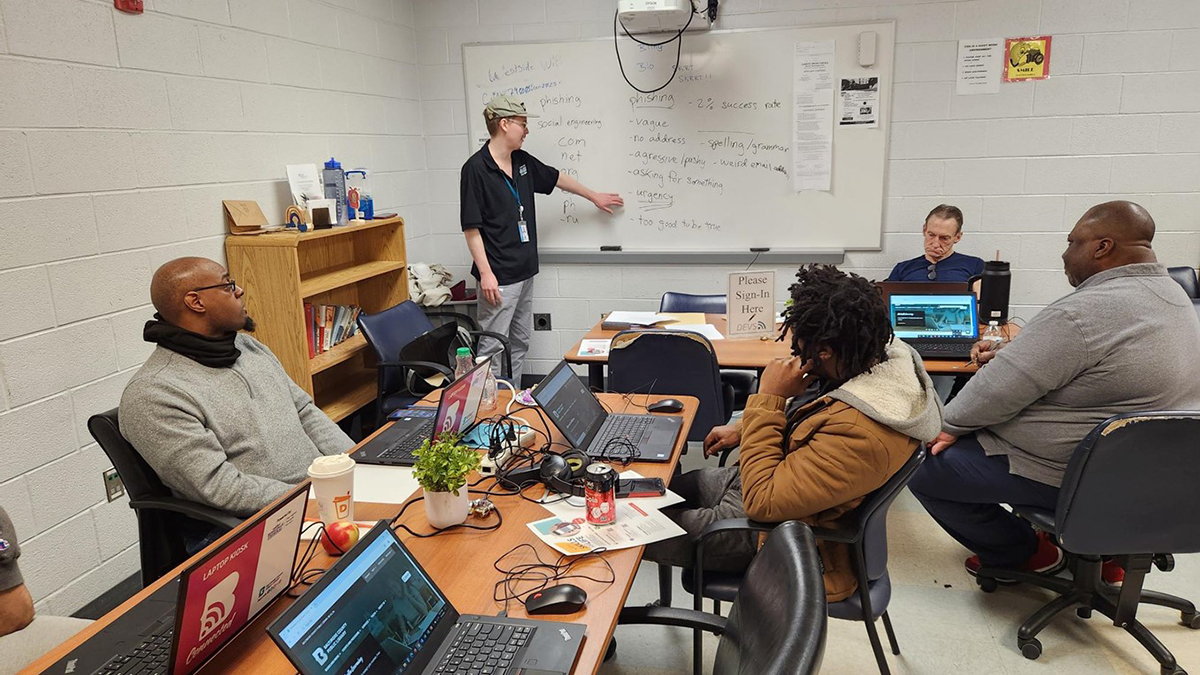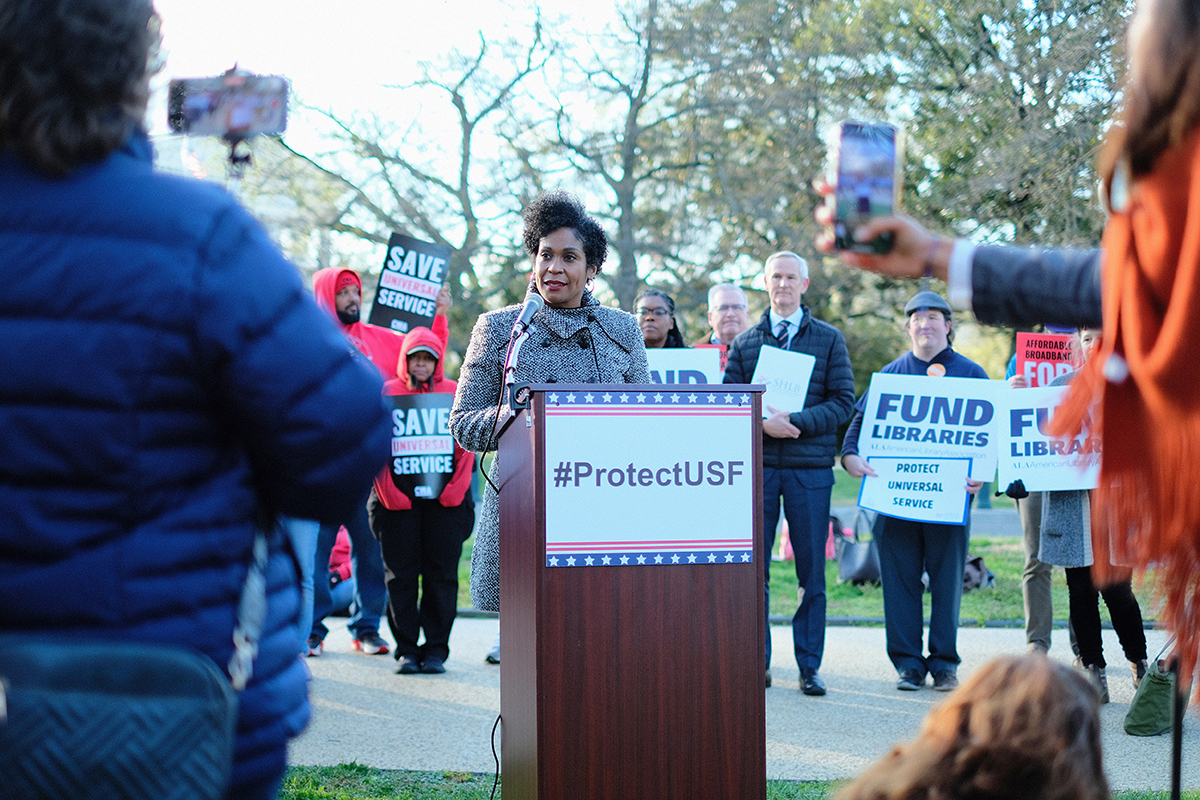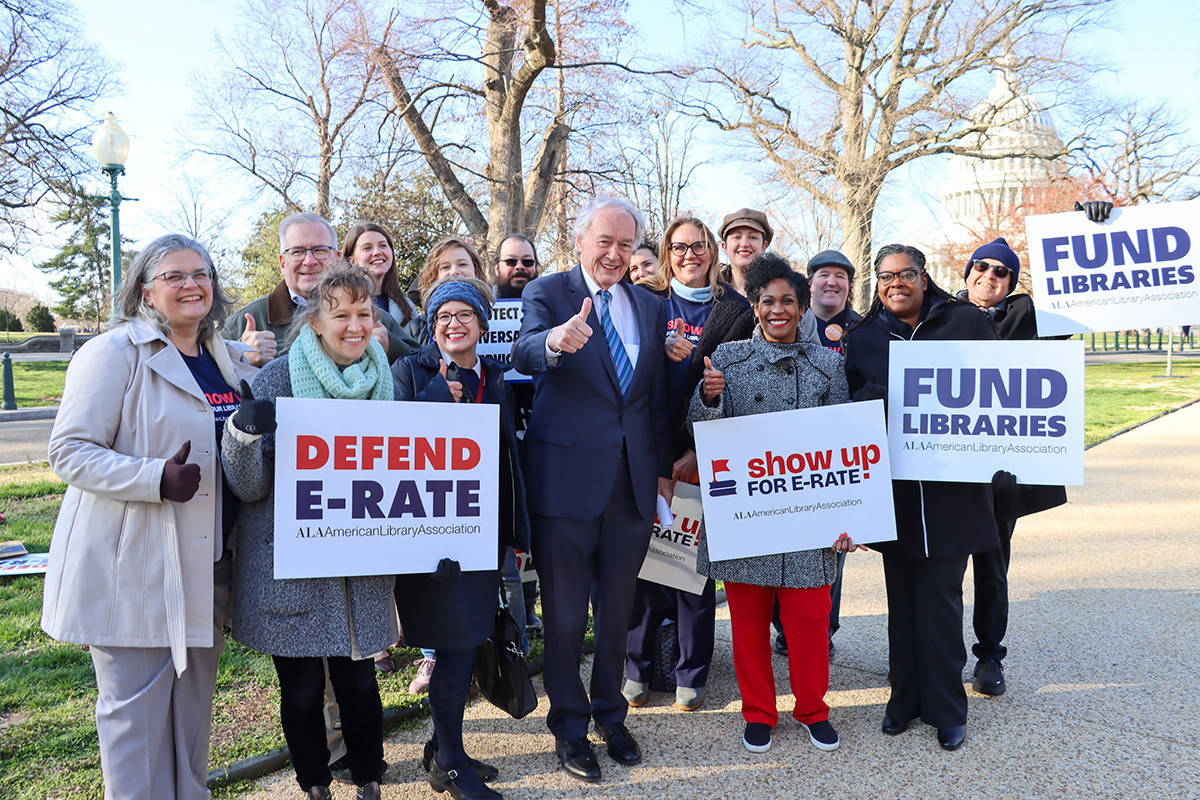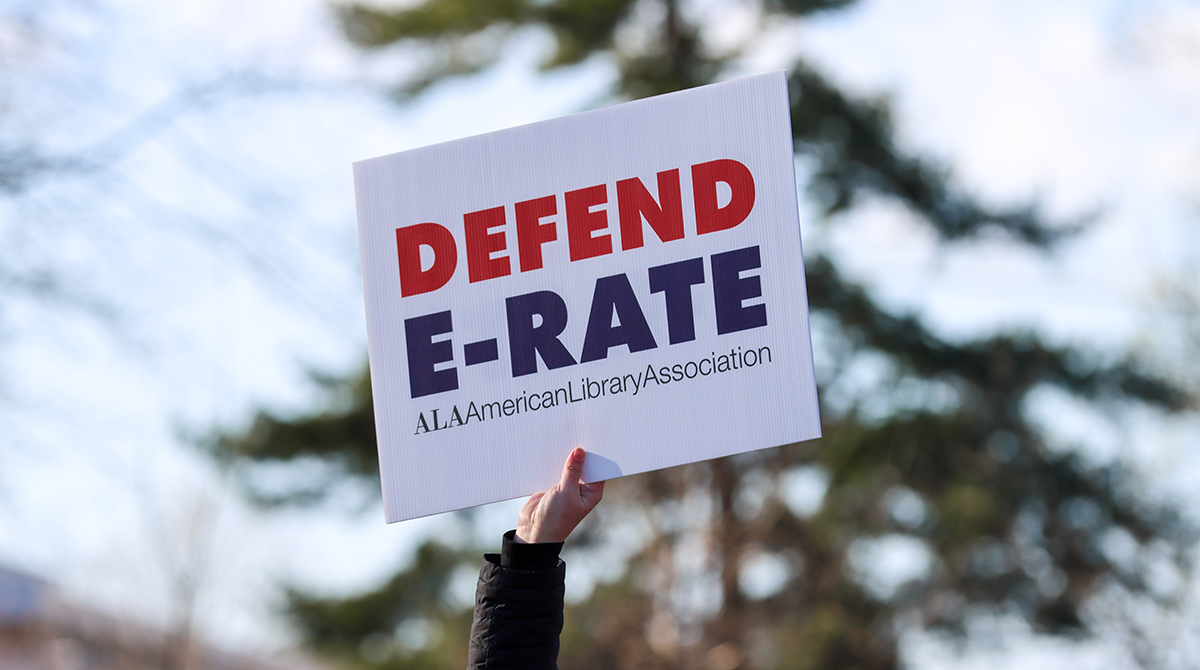It was a crisp Wednesday morning in Washington, DC, as library advocates rallied on Capitol Hill to support E-Rate and the Universal Service Fund ahead of oral arguments in front of the Supreme Court.
The combined cases before the court—FCC v. Consumers’ Research and Schools, Health, and Libraries Broadband Coalition v. Consumers’ Research—will determine the fate of a program that injects billions of dollars each year into rural communities to provide high-speed internet for schools and libraries.
As a longtime E-Rate champion, the American Library Association filed an amicus brief in the case in January affirming the constitutionality of the Universal Service Fund and the vital importance of E-Rate to libraries and our communities. A decision on the cases is expected in June.
Become a Supporter
What Is E-Rate?
The E-Rate program provides discounts on internet access, telecommunications services, and related costs to public libraries and K-12 schools, with the deepest discounts going to rural communities. It is one of four Universal Service Fund programs authorized by Congress in 1996 that aims to bring broadband internet to communities that are difficult to reach and often are too expensive for private companies to invest in building out new infrastructure.

E-Rate’s impact on America’s public libraries over the last three decades is enormous. In 1996, only about 44% of public libraries had any kind of internet access; just four years later, nearly 96% of libraries were able to offer public internet access to library users, in large part due to E-Rate.
Today, E-Rate is a quiet yet essential powerhouse that allows virtually all of our nation’s libraries to offer internet access to the public and overwhelmingly benefits communities in rural states.
"Keep Our Communities Connected"

Sonia Alcantara-Antoine, CEO of the Baltimore County Public Library and past president of ALA’s Public Library Association, led ALA’s contingent at the “Keep Our Communities Connected” rally. She was joined by Senator Ed Markey (D-MA), one of the authors of the original E-Rate legislation, and Anna Gomez, Commissioner of the Federal Communications Commission—the federal agency that administers the Universal Service Fund, as well as advocates from other public interest groups.
“Today, the American Library Association and our advocates are fighting for the Universal Service Fund because we believe that having access to broadband is a human right,” Alcantara-Antoine said. “The Universal Service Fund supports vital connectivity in a world where being unconnected means being left behind.”
Sign Up For Advocacy Alerts
Alcantara-Antoine told the story of a patron at her library in Baltimore County.
“Thanks to E-Rate, one of our regular users, Madison, checked out a Wi-Fi hotspot from the library so that she can attend school online,” she said. “She is working two part-time jobs to help care for her household, which includes two people living with disabilities. Madison is determined to uplift herself and her family out of poverty and using the library’s internet resources to do it.”
At the Courts and Beyond
During the morning’s oral arguments, the Supreme Court signaled support for preserving the Universal Service Fund. Many justices voiced concerns about eliminating the fund and the harms to low-income households, rural residents, and libraries and schools.

While the court’s decision is expected in June, ALA and other advocates continue to push for the program’s long-term sustainability through policy discussions with decision makers and raising awareness of E-Rate’s impact everywhere.
As a library lover, you can take action now too:
- Sign up for advocacy alerts from the American Library Association to stay informed and respond to calls for action.
- Read up about E-Rate and ALA’s recent advocacy efforts.
- Share your library story: how has your library’s public internet access helped you stay connected, find information, or get your work done?
- Help support our work fighting for E-Rate and other issues that affect your library and community by becoming a supporter of the American Library Association.
Contribution for this story from Megan Janicki.
Featured photo courtesy Office of Senator Ed Markey.


